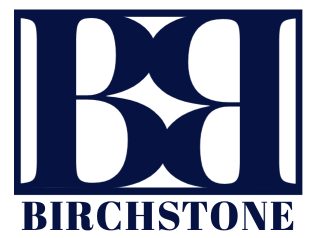Coinciding with the prevailing sentiment among investors, there is a growing perception that the stock market is rigged against individual participants. This perception finds support in various factors, such as the prevalence of insider trading and the asymmetric access to information.
Insider trading, though illegal, remains rampant, with corporate elites and Wall Street executives benefiting from nonpublic knowledge. Moreover, professional investors hold a distinct advantage through their access to unpublished information, industry expertise, and advanced trading techniques.
This article aims to delve into these issues to unveil the truth behind the perception: is the stock market truly rigged?
Key Takeaways
- 56% of stock market investors believe the stock market is rigged against individual investors.
- Insider trading is illegal but happens frequently, with corporate elites, Wall Street executives, consultants, and politicians profiting from insider information.
- Individual stock pickers lack access to unpublished information and industry expertise, putting them at a disadvantage compared to professional and institutional investors.
- Dark pools, high-frequency trading, and corporate buybacks contribute to the volatility and potential manipulation of the stock market, making it challenging for individual investors to navigate.
Perception of Rigging
The perception of a rigged stock market is prevalent among stock market investors, with a Bankrate.com survey revealing that 56% believe it is rigged against individual investors.
This perception stems from the existence of market manipulation, which can have a detrimental impact on individual investors. Market manipulation refers to the deliberate attempt to interfere with the natural market forces to create artificial price movements. This can be done through various means, such as spreading false information or engaging in illegal activities like insider trading.
When market manipulation occurs, individual investors often suffer as they are not privy to the same level of information and resources as institutional investors. As a result, they may make investment decisions based on false or incomplete information, leading to financial losses.
The perception of a rigged stock market highlights the need for regulatory measures to ensure a fair and level playing field for all market participants.
Insider Trading
Insider trading involves the trading of securities based on nonpublic information, which is both illegal and frequently observed in various sectors. It is a practice where individuals with privileged access to confidential information exploit their advantage for personal gain.
Here are key insights into the impact of insider trading and the challenges associated with prosecuting offenders:
-
Widespread occurrence: Despite its illegality, insider trading remains prevalent, with corporate elites, Wall Street executives, consultants, and politicians often benefiting from insider information.
-
Rare prosecution: Prosecution for insider trading is infrequent, making it difficult to deter offenders effectively. The complexities of proving insider trading cases, including establishing intent and demonstrating the use of nonpublic information, contribute to the low prosecution rates.
-
Advantage over individual investors: Average inside traders consistently outperform individual stock pickers due to their access to exclusive information. This asymmetry of information puts individual investors at a significant disadvantage.
-
Need for stricter enforcement: To address the perception of a rigged stock market, there is a need for enhanced regulations and more robust enforcement of insider trading laws. This would help level the playing field and restore confidence in the fairness of the market.
Asymmetric Information Access
Access to information in the stock market is characterized by a significant imbalance between individual investors and professional institutional investors.
While individual stock pickers lack access to unpublished information and industry expertise, professional investors have the advantage of industry knowledge, market research, and real-time insights. They also utilize complex algorithms for buy-sell decisions, further enhancing their advantage.
Additionally, professional institutional investors have access to capital from multiple sources, allowing them to allocate larger sums for investments. This advantage is further amplified by lower fees and commissions, as well as the ability to execute block trades at a discount to market price.
In contrast, individual retail investors face limited capital allocations and higher fees, putting them at a disadvantage in the stock market.
Understanding these factors is crucial for individual investors to make informed decisions and mitigate the disadvantages they face.
Corporate Buybacks and Volatility
Corporate buybacks have become a controversial practice due to their potential to artificially raise stock prices and contribute to the volatility of the stock market. Rule 10b-18 has legalized stock market manipulation through buybacks, allowing top corporate executives to benefit without reducing the number of shares outstanding.
In fact, buybacks have reached record levels in 2021 and are estimated to be responsible for 40% of stock market growth. This creates a challenging environment for individual investors who face difficulties in timing the market and picking stocks. The stock market can be volatile and overinflated, making it difficult for retail investors to know when to buy or sell.
Moreover, individual investors lack the information and advantages enjoyed by institutional investors, further exacerbating their disadvantages. Understanding the impact of corporate buybacks on the stock market and individual investors is crucial for making informed investment decisions.
Frequently Asked Questions
How does the perception of a rigged stock market affect individual investors' confidence and decision-making?
The perception of a rigged stock market negatively affects individual investors' trust and confidence. It can lead to hesitation in decision-making and reluctance to participate in the market due to concerns about market manipulation and unfair advantages enjoyed by institutional investors.
What measures are being taken to prevent and prosecute insider trading in the stock market?
The prevention and prosecution of insider trading in the stock market are essential for enhancing market transparency. Various measures are being taken, including increased regulatory oversight, surveillance systems, and enforcement actions to deter and punish insider trading activities.
Are there any efforts in place to provide individual stock pickers with more access to information and level the playing field with professional investors?
Efforts have been made to provide individual stock pickers with more access to information and level the playing field with professional investors. These include initiatives to improve transparency, enhance investor education, and promote fair trading practices in the stock market.
How do corporate buybacks impact the overall volatility and stability of the stock market?
Corporate buybacks have a significant impact on the overall volatility and stability of the stock market. They can artificially raise stock prices and contribute to market overinflation. This can affect individual investors' confidence and decision-making, further perpetuating the perception of a rigged stock market. To level the playing field for stock pickers, alternative investment strategies such as diversification and long-term investing should be considered.
What are some alternative investment strategies that individual investors can consider to navigate the potential rigging of the stock market?
Alternative investment strategies can help individual investors navigate potential rigging in the stock market. Diversification, long-term investing, leveraging investments effectively, seeking professional advice, and avoiding market timing and individual stock picks can increase confidence and informed decision making. Preventing and prosecuting insider trading, promoting a level playing field in access to information, and addressing the impact of corporate buybacks on volatility and stability are also important considerations.

